Our Services
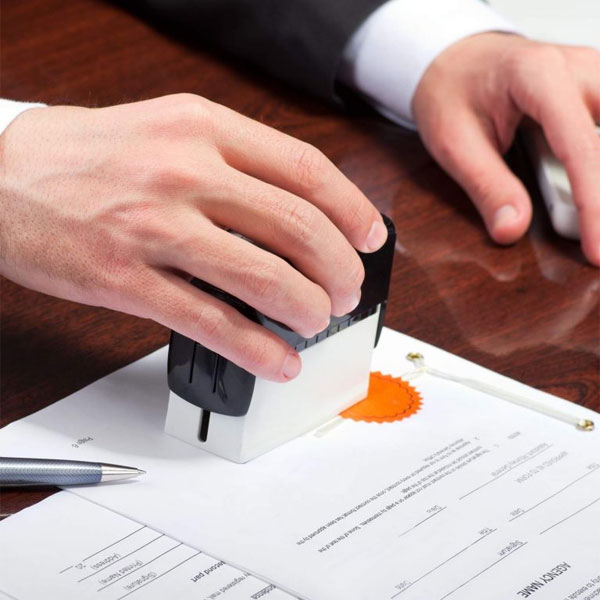
Certified Translations
Certified translations are documents accurately translated by a professional, accompanied by a signed statement certifying the accuracy of the translation. This type of translation is required by government agencies, educational institutions, legal entities, and other official organizations in the United States.
Certified translations are essential for individuals who must submit official documents in a language other than English to authorities in the United States. Some examples include:
• Individuals undergoing immigration processes with USCIS.
• Students applying for admission to U.S. universities.
• Individuals needing to validate legal documents, such as wills and contracts.
• Businesses requiring official translations of corporate documents.
For a certified translation to be accepted by authorities, it must meet the following requirements:
• Be completed by a professional translator proficient in both languages.
• Include a signed certification statement attesting to the accuracy of the translation and the translator's competence.
• Maintain the format and structure of the original document.
• Be clear, precise, and free of omissions.
When does USCIS require certified translations?
USCIS requires certified translations for documents such as birth certificates, marriage certificates, and other legal records issued in languages other than English.
Do certified translations need to be notarized?
In most cases, certified translations do not need to be notarized, although some institutions may require it.
How long does a certified translation take?
The time frame depends on the length and complexity of the document, but it is generally completed within 24 to 72 hours.
U.S. Citizenship
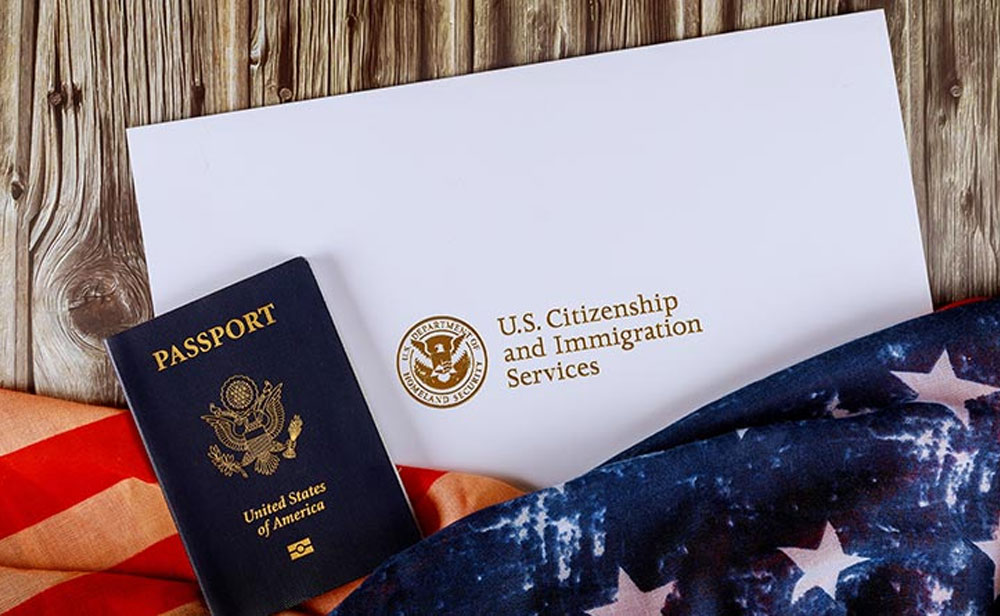
-
Naturalization is the process by which a person born in another country can obtain U.S. citizenship.
This process requires meeting certain eligibility criteria, submitting an application to the U.S. Citizenship and Immigration Services (USCIS), passing a civics test, and completing the oath ceremony.
To be eligible for naturalization, applicants must meet at least one of the following conditions:
• Lawful permanent residents (Green Card holders) for a specified period.
• Individuals married to U.S. citizens who have met the residency requirements.
• Members of the U.S. Armed Forces who meet certain criteria.
• Children of U.S. citizens born abroad who may derive or acquire citizenship.
To apply for naturalization, you must meet the following requirements:
Be at least 18 years old at the time of application. Be a lawful permanent resident (LPR) for:
• 5 years, if no other category applies.
• 3 years, if married to a U.S. citizen.
• Have continuously resided in the U.S. and meet the physical presence requirement.
• Demonstrate good moral character.
• Be able to read, write, and speak basic English (some exemptions apply).
• Pass a civics test on U.S. history and government.
• Be willing to take the Oath of Allegiance to the United States.
How long does the naturalization process take?
Processing times vary, but it generally takes between 8 and 14 months from application submission to the oath ceremony.
Is the English and Civics Test Mandatory?
Yes, but there are exemptions for individuals over a certain age or with specific medical conditions.
Can I Apply for Citizenship If I Have a Criminal Record?
It depends on the nature of the record. It is recommended to consult with a professional to assess your eligibility.
Permanent Residence – Green Card

-
The renewal of permanent residence is the process by which Green Card holders can apply for a new card before their current one expires.
This procedure is essential to maintaining lawful permanent resident status in the United States and continuing to enjoy its associated benefits.
The following permanent residents must apply for Green Card renewal:
• Individuals whose Green Card will expire within the next six months.
• Permanent residents who have lost, damaged, or had their Green Card stolen.
• Holders of a 10-year Green Card that has expired or is about to expire.
• Permanent residents who need to update their card information (such as name or other personal details).
To apply for the renewal of permanent residency, the following requirements must be met:
• Possess a valid Green Card that is about to expire or has already expired.
• Complete and submit Form I-90 to USCIS.
• Pay the required fee, unless eligible for a fee waiver.
• Provide proof of identity and supporting documents if the card is lost or damaged.
• Maintain lawful permanent resident status.
How long does the renewal process take?
Processing times vary, but it typically takes between 6 and 12 months. USCIS may issue a receipt that extends the validity of the expired Green Card until the new one is received.
Can I travel if my Green Card is expired?
If you have received an extension notice from USCIS, you can usually travel. However, it is recommended to check with the airline and immigration authorities before leaving the country.
What should I do if my Green Card is lost or damaged?
You must file Form I-90 and provide supporting documentation to obtain a replacement.
Temporary Protected Status (TPS)
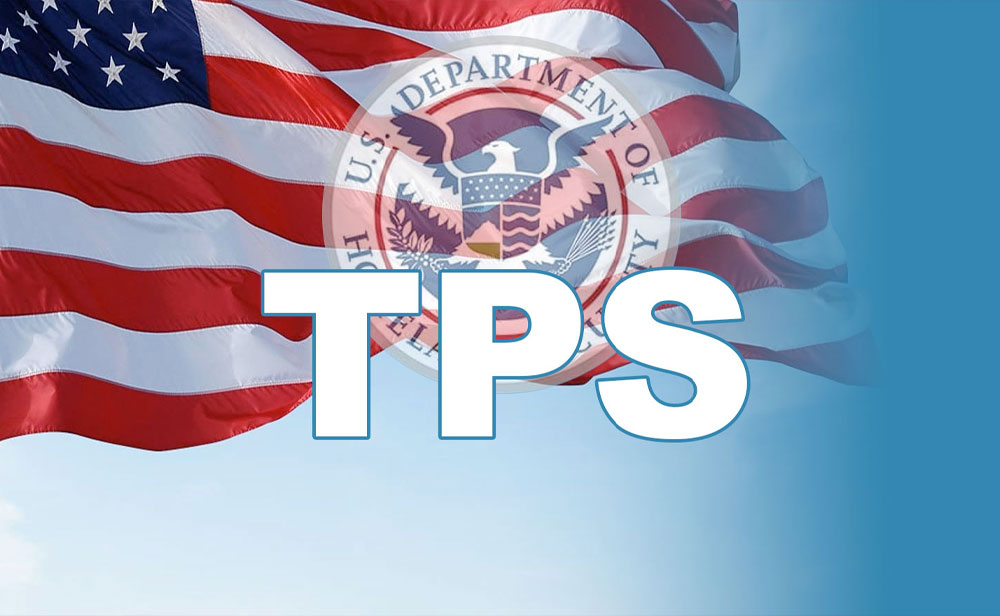
-
Temporary Protected Status (TPS) is a benefit granted by the U.S. government to individuals from certain countries experiencing extraordinary conditions, such as armed conflict, natural disasters, or other circumstances that prevent safe return.
This status allows beneficiaries to live and work legally in the U.S. for a designated period, subject to renewals based on government decisions.
To qualify for Temporary Protected Status, applicants must meet the following criteria:
• Be a citizen or habitual resident of a country designated for TPS.
• Have been physically present in the U.S. since the TPS designation date for their country.
• Have continuously resided in the U.S. since the date specified by USCIS.
• Have not committed certain crimes that would disqualify them from this benefit.
• File the application during the initial registration period or re-registration period.
To apply for Temporary Protected Status, the following requirements must be met:
• Submit Form I-821 to USCIS.
• If seeking work authorization, also submit Form I-765.
• Provide proof of nationality and residence in the U.S.
• Comply with the registration or re-registration deadlines set by USCIS.
• Not be subject to grounds of inadmissibility under immigration law.
How long does TPS last?
The duration of TPS depends on the country’s designation and can be periodically extended by the U.S. government.
Does TPS lead to permanent residency?
Not directly, but some beneficiaries may be eligible for other adjustment of status options.
What happens if my country loses its TPS designation?
Beneficiaries will have a period of time to leave the U.S. or pursue other legal immigration options.
Renewal of Deferred Action for Childhood Arrivals (DACA)

-
DACA renewal is the process by which beneficiaries of the program can extend their protection from deportation and work authorization for an additional two years.
It is important to submit the renewal application within the recommended timeframe to avoid interruptions in immigration status and work authorization.
To be eligible for DACA renewal, applicants must meet the following criteria:
• Have previously held valid DACA status.
• Not have left the U.S. without Advance Parole after their last DACA approval.
• Have continuously resided in the U.S. since their last DACA approval.
• Not have been convicted of felonies, certain misdemeanors, or pose a threat to public safety.
To apply for DACA renewal, the following requirements must be met:
• Submit Form I-821D to USCIS.
• Submit Form I-765 to renew the work permit.
• Pay the required fees, unless eligible for a fee waiver.
When should I renew my DACA?
It is recommended to submit your renewal application 120 to 150 days before your current permit expires.
Can I continue working if my DACA expires before the renewal is approved?
No, if your DACA and work permit expire before your renewal is approved, you cannot legally work until you receive the new approval.
Does DACA provide a pathway to permanent residency?
Not directly, but some beneficiaries may be eligible for other adjustment of status options.
Advance Parole (Travel Permit)

-
Advance Parole is a document that allows certain non-citizens to leave the United States and return lawfully without affecting their immigration status.
This permit is essential for individuals with pending applications with USCIS, such as DACA, TPS, or adjustment of status, who wish to travel for humanitarian, employment, or educational purposes.
To qualify for Advance Parole, applicants must meet the following criteria:
• Have a valid immigration status or a pending application with USCIS.
• Demonstrate that the travel is for humanitarian, educational, or employment reasons.
• Not be subject to a removal order or inadmissibility that would prevent reentry to the U.S.
• Not have departed the U.S. without prior authorization while having a pending case with USCIS.
To apply for Advance Parole, the following requirements must be met:
• Submit Form I-131 to USCIS.
• Pay the required fee, unless eligible for a fee waiver.
• Provide evidence supporting the purpose of the travel.
• In some cases, attend a biometrics appointment for fingerprinting and a photograph.
How long does it take to get Advance Parole approved?
Processing times vary, but it generally takes between 3 and 6 months. In urgent cases, expedited processing may be requested.
Can I travel without Advance Parole if I have a pending case with USCIS?
No, leaving the U.S. without this permit may be considered an abandonment of your case and could affect your immigration process.
Does Advance Parole guarantee my reentry to the U.S.?
No, approval of Advance Parole does not guarantee admission to the country. The final decision is made by the immigration officer at the port of entry.
Parole in Place for Military Families in the U.S.
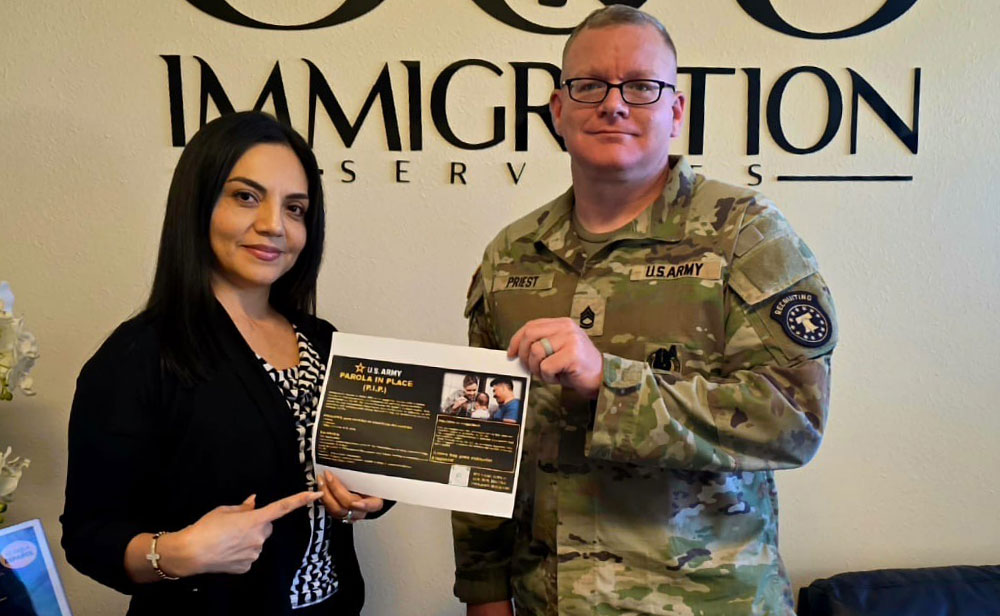
-
Parole in Place (PIP) is an immigration benefit available to certain family members of active-duty U.S. military personnel, reservists, or veterans. This program allows beneficiaries to:
• Remain legally in the U.S. without fear of deportation.
• Apply for a work permit (Employment Authorization Document).
• Facilitate the adjustment of status to obtain permanent residency in some cases.
Immediate family members of the following may apply for Parole in Place:
• Active duty members of the U.S. Army, Navy, Air Force, Marines, or Coast Guard.
• Reservists on active duty.
• Honorably discharged veterans.
Eligible family members include:
• Spouses.
• Parents.
• Unmarried children under 21 years old.
To apply for Parole in Place, the following is generally required:
• Form I-131, Application for Travel Document.
• Proof of family relationship (marriage certificate, birth certificate, etc.).
• Evidence of the sponsor member's military status.
• Proof of identity (passport or other valid identification).
• A letter of explanation detailing the humanitarian reasons for requesting Parole in Place.
Does Parole in Place lead to permanent residency?
Not directly. However, it can facilitate the adjustment of status to permanent residency in certain cases.
How long does Parole in Place last?
It is typically granted for one year, with the possibility of renewal.
Can I obtain a work permit with Parole in Place?
Yes, upon receiving Parole in Place, you can apply for a work permit (Employment Authorization Document).
Do I need to leave the U.S. to adjust my status after receiving Parole in Place?
No. Parole in Place allows you to adjust your status without leaving the U.S., in certain cases.
Does Parole in Place affect my chances of obtaining permanent residency?
It does not negatively affect your chances and, in many cases, it facilitates the adjustment of status process.
Work Permit
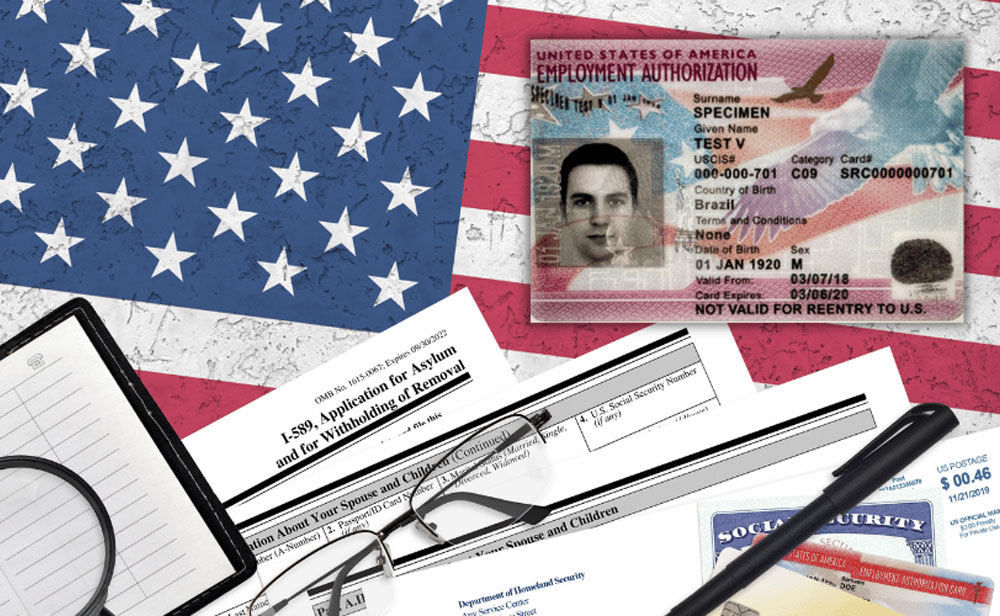
-
A Work Permit, officially known as an Employment Authorization Document (EAD), is issued by U.S. Citizenship and Immigration Services (USCIS) and allows certain immigrants to work legally in the U.S. for a specified period.
A Work Permit is available to individuals with certain immigration statuses or pending applications, including:
• Asylum applicants with pending or approved cases.
• Individuals with Temporary Protected Status (TPS).
• DACA recipients or beneficiaries of humanitarian programs.
• Applicants for adjustment of status to permanent residency.
• Spouses of certain nonimmigrant visa holders, such as H-1B or L-1 visa holders.
• Individuals with other immigration permissions eligible for employment authorization.
To apply for an Employment Authorization Document (EAD), the following requirements must be met:
• Submit Form I-765 to USCIS.
• Pay the required fee, unless eligible for a fee waiver.
• Provide proof of eligibility for employment authorization.
• Include copies of identity documents and immigration status.
How long does it take to get a Work Permit approved?
Processing times vary, but it generally takes between 3 and 7 months. USCIS offers expedited processing in certain cases.
Does a Work Permit give me legal status in the U.S.?
No, a Work Permit only grants authorization to work; it does not change the applicant's immigration status.
How long is a Work Permit valid?
The validity of a Work Permit depends on the type of application and can range from 1 to 2 years, with the option to renew.
Adjustment of Status

-
Adjustment of Status is the process that allows a person already in the United States to apply for permanent residency (Green Card) without needing to leave the country.
This process is managed by U.S. Citizenship and Immigration Services (USCIS) and enables certain immigrants to obtain legal residency without applying for a visa abroad.
To be eligible for Adjustment of Status, the applicant must meet certain criteria, such as:
• Having been lawfully admitted to the U.S. with a valid visa or under parole.
• Having an approved immigrant petition and an available immigrant visa.
• Not having committed immigration violations that would disqualify them.
• Being the beneficiary of a family-based or employment-based petition, or qualifying under a special category (e.g., asylees, refugees, or victims of certain crimes).
To apply for permanent residency through Adjustment of Status, the following requirements must be met:
• Submit Form I-485 to USCIS.
• Have an approved petition (Form I-130, I-140, or others).
• Provide proof of lawful admission to the U.S.
• Undergo a medical examination and submit Form I-693.
• Pay the required fees, unless eligible for a fee waiver.
• Not have violated the terms of the visa under which they entered.
How long does Adjustment of Status take?
Processing times vary, but it generally takes between 8 and 14 months, depending on the eligibility category and USCIS workload.
Can I work while my Adjustment of Status is pending?
Yes, if you file Form I-765 along with your Adjustment of Status application, you can obtain a temporary Work Permit.
Can I travel outside the U.S. while my Adjustment of Status is pending?
Yes, but only if you apply for and receive Advance Parole before leaving the country.
Consular Processing

-
Consular Processing is the procedure through which a person outside the United States applies for an immigrant visa to obtain permanent residency (Green Card).
This process is conducted at a U.S. consulate or embassy in the applicant's home country and is an alternative to Adjustment of Status for those not residing in the U.S.
To apply for permanent residency through Consular Processing, the following requirements must be met:
• Have an approved immigrant petition (Form I-130 or I-140).
• Have an immigrant visa available according to the Department of State's Visa Bulletin.
• Complete and submit Form DS-260 online.
• Provide proof of family relationship or employment, as applicable.
• Undergo a medical examination with an authorized provider.
• Not be subject to grounds of inadmissibility or submit a waiver application if applicable.
How long does Consular Processing take?
Processing times vary depending on the visa category and the applicant's country of origin, but it generally takes between 6 and 12 months.
Can I work in the U.S. while waiting for my visa through Consular Processing?
No, the applicant must wait outside the U.S. until the immigrant visa is approved.
What happens if my visa is denied?
If the visa is denied, the consular officer may indicate whether there is an option to submit additional information or apply for a waiver of inadmissibility.
Waiver for Unlawful Presence

-
A Waiver for Unlawful Presence is a legal remedy that allows certain individuals who have accrued unlawful presence in the U.S. to request a waiver before leaving the country to complete consular processing.
This waiver, known as Form I-601A, helps avoid the 3- or 10-year reentry ban imposed on those who have been in the U.S. without legal status.
To be eligible for this waiver, the applicant must meet the following criteria:
• Be the spouse, child, or parent of a U.S. citizen or lawful permanent resident.
• Have an approved immigrant petition and be in the process of obtaining an immigrant visa.
• Demonstrate that separation would cause extreme hardship to the qualifying relative.
• Not have serious criminal records or other additional grounds of inadmissibility.
To apply for this waiver, the following requirements must be met:
• Submit Form I-601A to USCIS.
• Pay the required fee, unless eligible for a fee waiver.
• Provide evidence of the relationship with the qualifying relative.
• Present proof that the separation would cause extreme hardship to the family member.
• Not have committed other offenses that would prevent waiver approval.
How long does the I-601A waiver process take?
Processing times vary, but it generally takes between 2 and 4 years.
Does the I-601A waiver guarantee visa approval?
No, the waiver only removes the reentry ban. The applicant must still complete the consular interview and meet other immigration requirements.
What is considered extreme hardship?
Factors such as medical, financial, or emotional difficulties that would significantly impact the qualifying relative in the event of prolonged separation.
FOIA

-
The Freedom of Information Act (FOIA) allows individuals to request access to records from the U.S. government.
FOIA is a useful tool for obtaining information about immigration histories, USCIS decisions, and other government documents relevant to an immigration case.
Anyone can file a FOIA request, including U.S. citizens, permanent residents, and individuals involved in immigration processes. This tool is especially useful for:
• Individuals seeking to review their immigration history.
• People who have had previous interactions with USCIS, ICE, or CBP.
• Individuals in removal proceedings who need documents for legal defense.
• People who have applied for immigration benefits and want copies of their previous applications.
To request information under FOIA, the following requirements must be met:
• Submit a request to the appropriate government agency (USCIS, ICE, CBP, or another entity).
• Provide detailed information about the records being requested.
• Include personal details to assist in the search, such as full name, date of birth, and Alien Number (if applicable).
• In some cases, provide a signed authorization if requesting information on behalf of another person.
How long does a FOIA request take?
Processing times vary by agency and the complexity of the request, but it can take between 30 and 90 days.
Can FOIA provide all of my immigration records?
It depends on the agency and the availability of records. Some documents may be protected by legal exemptions.
Can I expedite my FOIA request?
In cases of emergencies or urgent legal proceedings, expedited processing can be requested.
More Options for Your Immigration Process
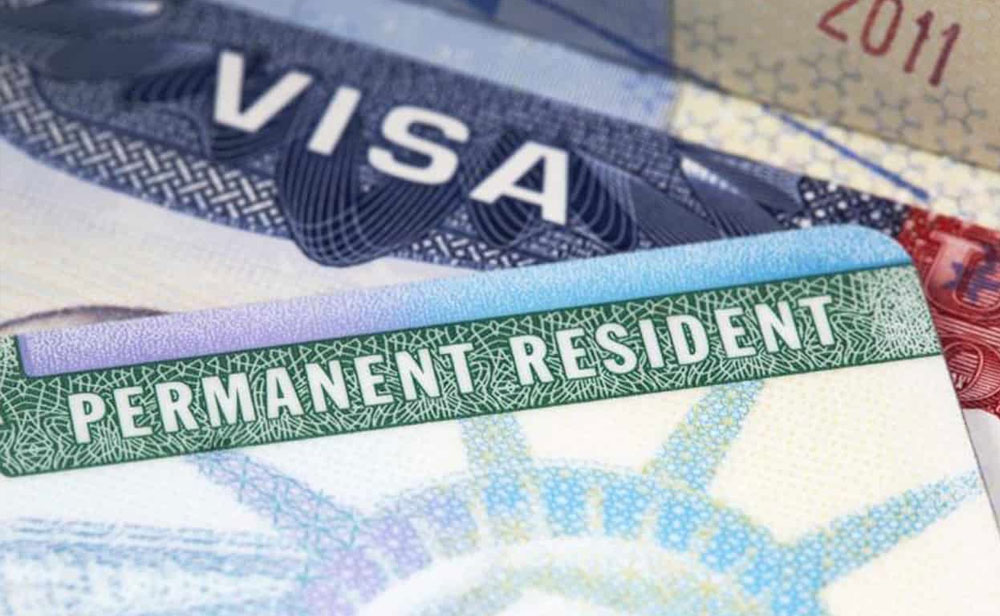
-
In addition to our main services, we also provide information and assistance with various immigration processes, including:
For those who wish to visit the United States for leisure, business, or medical treatment.
For individuals who have been victims of human trafficking and meet certain requirements.
Available to those who have been victims of certain crimes and have cooperated with law enforcement in the investigation or prosecution.
For individuals who have been victims of domestic violence and can apply for immigration status under the Violence Against Women Act.
For minors who have experienced abuse, neglect, or abandonment and require special protection in the United States.
Call us right now!
805 Immigration Services is a private office that provides assistance in the preparation and submission of immigration forms. We are not attorneys, and we do not offer legal advice or representation before any government agency.
For official information, please visit www.uscis.gov.

Copyright © 2025 - 805 Immigration Services - All Rights Reserved
Privacy Policy - Disclaimer